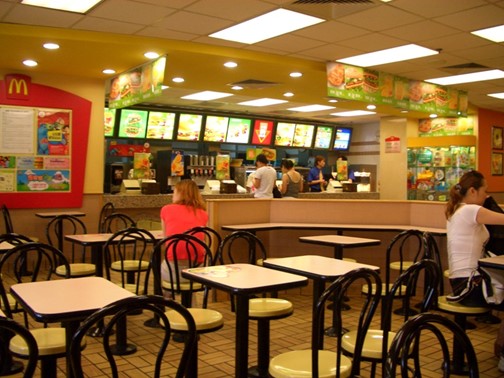Introduction
Do you dream of opening your restaurant in South Africa? Do you want to turn your passion for food into a profitable business? If so, you are not alone. The restaurant industry is one of the most popular and competitive sectors in the country, with over 25,000 establishments and a market value of over R80 billion. However, starting a restaurant is not as easy as it seems. It requires careful planning, hard work, and a lot of resources. Read this guide to learn some of the essential steps you need to take to start a successful restaurant business in South Africa. begin now!
To start a restaurant business in South Africa:
1. Plan Your Concept, Menu, Location, and Budget

To embark on a dining establishment venture in South Africa, plan your concept, menu, location, and budget. Have a clear idea of what kind of restaurant you want to open, what kind of food you want to serve, and who your target customers are. You also need to research the market and the competition in your area and find a suitable location for your restaurant. Estimate how much money you need to start and run your business, and how you want to finance it. You can use a business plan template to guide you through this process.
2. Register Your Company as a Legal Entity and Obtain a Business License
To get a restaurant enterprise off the ground in South Africa, register your company with the Companies and Intellectual Property Commission (CIPC) and choose a name and a legal structure for your business. You also need to obtain a business license from your local municipality, which requires you to submit an application form, a copy of your ID, proof of address, and a fee. You may also need to register for tax, VAT, UIF, and other statutory requirements depending on your business size and turnover.
3. Apply for a Certificate of Acceptability for Food Premises and a Fire Inspection
To commence a food service venture in South Africa, apply for a certificate of acceptability for food premises and a fire inspection. Ensure that your restaurant meets the health and safety standards set by the Department of Health and the National Regulator for Compulsory Specifications (NRCS).
You need to apply for a certificate of acceptability for food premises from your local health authority, which inspects your premises and equipment for hygiene and sanitation. You also need to arrange for a fire inspection from your local fire department, which checks your premises for fire hazards and compliance with fire regulations.
4. Obtain a Liquor License if You Plan to Sell Alcohol and a Music License if You Plan to Play Music
To open a restaurant business in South Africa, obtain a liquor license. If you want to sell alcohol in your restaurant, apply for a liquor license from the relevant provincial liquor authority. You need to submit an application form, a business plan, a zoning certificate, a police clearance certificate, a tax clearance certificate, and a fee. You also need to comply with the liquor laws and regulations, such as the trading hours, the age limit, and the responsible service of alcohol.
In addition, if you want to play music in your restaurant, you need to obtain a music license from the Southern African Music Rights Organisation (SAMRO), which collects royalties on behalf of the composers and publishers of the music you play. You need to submit an application form, a copy of your ID, a proof of address, and a fee.
5. Hire and Train Staff, Suppliers, and Marketing Strategies
To set up a dining establishment in South Africa, hire and train staff for your restaurant, such as chefs, waiters, managers, cleaners, and security guards. You need to follow the labor laws and regulations, such as the minimum wage, the working hours, the leave entitlements, and the contracts. Find reliable suppliers for your food, beverages, equipment, and other materials. You need to negotiate the prices, the quality, the delivery, and the payment terms with your suppliers. You also need to develop marketing strategies to promote your restaurant and attract customers. You can use various channels, such as social media, websites, flyers, coupons, referrals, and events.
6. Design Your Restaurant Layout and Decor
To begin a restaurant enterprise in South Africa, design your restaurant layout and decor. Create a layout and decor that matches your concept, menu, and budget. You need to consider the space, the furniture, the lighting, the color scheme, the artwork, and the ambiance of your restaurant. You also need to comply with the accessibility and safety standards for your customers and staff.
7. Create Your Restaurant Menu and Pricing
To kickstart a culinary venture in South Africa, create your restaurant menu and pricing. Design a menu that showcases your food, reflects your concept, and appeals to your target customers. You need to consider the variety, the quality, the portion size, the presentation, and the nutrition of your dishes. You also need to set prices that cover your costs, generate profits, and match your market.
8. Manage Your Restaurant Operations and Finances
To launch a food service business in South Africa, manage your restaurant and finances.
You need to establish systems and procedures for your restaurant operations, such as inventory management, food safety, waste management, customer service, and staff scheduling. You also need to keep track of your finances, such as income, expenses, cash flow, taxes, and accounting. You need to use tools and software to help you with these tasks.
Recap
To initiate a dining establishment in South Africa, you have learned some of the key steps to start a restaurant business in South Africa, such as planning your concept, menu, location, and budget, registering your company and obtaining licenses, applying for certificates and inspections, hiring and training staff, suppliers, and marketing strategies, and designing your layout, decor, menu, and pricing.
However, this is not a comprehensive list, and you may encounter other challenges and opportunities along the way. Therefore, you should always be prepared to adapt, learn, and improve your business. Starting a restaurant is not easy, but it can be rewarding if you have a clear vision, a strong passion, and a solid plan.

















